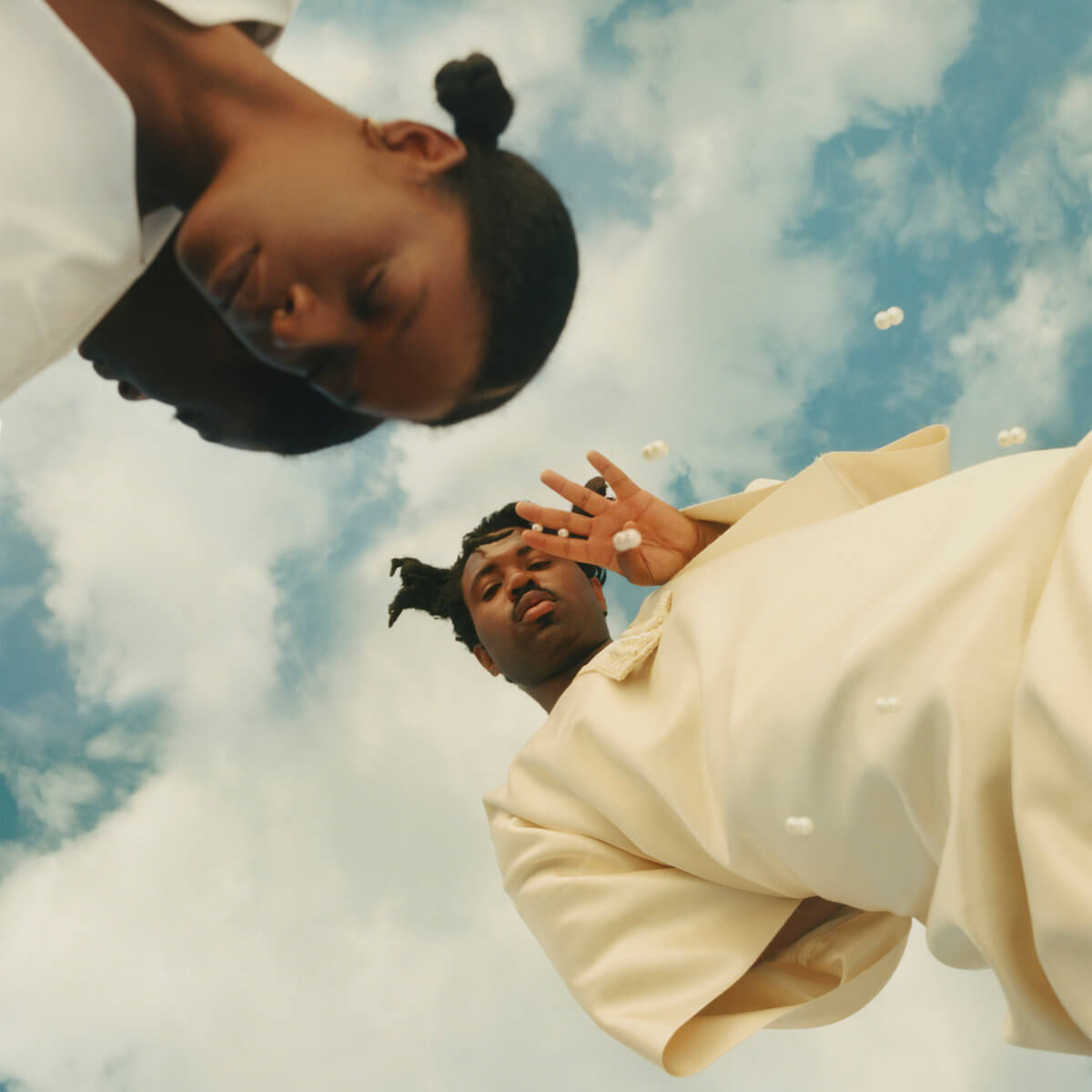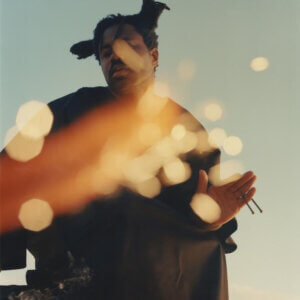
9
Lahai
Sampha
In case our you missed them: We are revisiting our favourite albums of 2023.
Since the enigmatic Sampha appeared all over SBTRKT’s genre-defying inaugural album in 2011, coating future garage anthems with deep voiced lullabies, intrigue around the artist soared. It was quite the left-field jolt when he ditched the dance rhythms for sonorous piano ballads on transfixing tracks “Too Much” and “Happens”. But with the release of 2013’s Dual EP, there were subtle tastes of electronica and West African folk music woven into the sombre beats, hinting at the extent of his abilities. When Sampha made two notable appearances on Drake’s Nothing Was The Same later that year, he ascended to previously unprecedented levels of recognition.
Six and a half arduous years have passed since London-born Sampha Sisay delivered on his potential (and then some) with his flawless Mercury prize winning debut Process. Since then, fans of his electronic tinged neo soul have only been held over from their insatiable hunger with guest spots on tracks from the likes of Alicia Keys, Kendrick Lamar, and Travis Scott. The desperation for another full-length release mirrors the unwavering anticipation for a follow up to Frank Ocean’s Blonde (albeit on a more modest scale, but the expectation of quality is virtually the same).
Following a trio of intimate shows at Hackney Church in London last week, the singer, pianist, and producer’s sophomore LP is finally in our hands, and it was undoubtedly worth the wait. Lahai is an enveloping listen, brimming with richly textured soul, syncopated breakbeats, and glistening keys. It goes deeper into Sampha’s sound than ever before, with opulent soundscapes immersing you over the beaming 14 tracks. The record is titled after his middle name, and in memory of his late grandfather, but instead of the heartrending grief explored on “Process”, Lahai is much more hopeful and tackle’s themes of human connection, moving forward, and even time-travel. The poignancy of these tracks is heightened further by the fact that his daughter came into the world during the pandemic. It’s easy to get lost in the lavish vibrations of Lahai, it’s strikingly grounded, spiritual, and uplifting.
On the album’s percussive, disjointed opener “Stereo Colour Cloud (Shaman’s Dream)” we’re introduced to twinkling keys and staccato rapped vocals from a woman’s voice. Warm, resonant basslines and chiming synthesisers dance with scattered breakbeats, as Sampha declares “we’ll grow a pair of wings and fly”. The evolving, dispersed rhythms echo that of Wassoulou folk music, skilfully pairing Sampha’s love for traditional African music with contemporary R&B and electronic. It’s chaotic, and there’s barely room to breathe until the spacey synths of lead single ‘Spirit 2.0’ rise in volume and clarity. As the nu jazz-inflected drums click away frantically, Sampha’s lilting vocals float over a bed of harmonious, soaring strings. Not too dissimilar from the polyrhythms and syncopation heard in the opener, this track is somehow a much gentler journey, providing an open space for Sampha to riff poetically about faith, love, and time.
Sampha approaches music like an architect, constantly adding new layers and building upon preexisting elements, crafting complex rhythms that somehow fit together seamlessly. Despite the often-hectic drums and electronics clashing with glossy piano chords, the grooves on Lahai still sound minimal and DIY. He continues to add texture to barebones structures on “Dancing Circles” with more plucky, bouncy keys and choppy, half-rapped verses, starkly juxtaposed with celestial-voiced meditations and downbeat chords lurking beneath the surface. There is a constant build-up of tension, until the drums arrive and provide respite, which is also the case for “Suspended”. Amongst almost nightmarish keys, Sampha’s first verse is hurried and riddled with anxiety. “I’ve been lifted by her love / I felt lifted from above”, he croons as the track becomes more hopeful.
As the record progresses on to “Satellite Business”, Sampha flirts with a whispery Kendrick-style inflection, entwined with warbling, whining extra-terrestrial synths. In a touching moment, he sings about his mother’s symbolic metempsychosis into his daughter – “through the eyes of my child, I can see you in my vision”. Themes of familial connection persist on the gorgeous, gospel influenced “Jonathon L Seagull (JLS)”. Harmonious group vocals represent his unity with family, whilst Sampha’s wistful falsettos guide us through the song’s heady verses. The song takes its name from the children’s book his older brother used to read to him, with the narrative paralleling Sampha’s own search for a higher meaning. This desire is explored further on the highlight “Inclination Compass (Tenderness)”, titled after the phenomenon in which birds always know where to fly to, as if on a predestined path. The track serves as a symbol of Sampha’s progression from dwelling on what cannot be altered through thought, and instead embracing life’s course.
The album’s second single “Only” brings the energy back, with the lively ebb and flow of Sampha’s vocals making it sound almost like a viral TikTok hit from a universe where Solange and D’angelo rule the airwaves. The track sees Sampha flexing his hip-hop-hued production chops whilst elevating the track to euphoric highs with its irresistibly catchy hook.
On “Time Piece” we hear a French woman repeatedly wishing for a time machine, and consequently “Can’t Go Back” sees Sampha confront the impossibility of rewinding time and, instead, focusing on pushing forward. Urgency builds in the beat whilst he grapples with grief, culminating in a brief ambush of jungle-inspired drums. The orchestral-jungle fusion is a pivotal moment in the album’s narrative and shows Sampha’s seemingly limitless talent for tackling new genres, whilst preserving his own distinctive sound. The fluttering wind-chime keys playing faintly in the background create an almost dystopian sci-fi soundscape beneath his anti-time-travel odyssey.
The penultimate track “What If You Hypnotise Me?” acts as a therapy session for Sampha, but also sees him push his genre-bending skillset further, tinkering with glitch pop spiked sounds. “Rose Tint”, the album’s closer, is a meditative moment with more ethereal, pulsing synths. Sampha calls out to his family: “Everybody gather round / Gonna take this picture now”, encapsulating a special moment in his life much like the track serves to do. The concluding moments of this LP are magnificent, and much like the rest of the album, show a near unrivalled musical and emotional richness.
On Lahai Sampha shows an incredible ability to craft sentimental and introspective songs, somehow creating unity between jittery drums, playful keys, and complex synthesisers. Through vulnerable songwriting and striking sound design, Sampha has evaded any semblance of a sophomore slump despite sky high expectations. The record will surely be remembered for years to come.
Pre-order Lahai HERE.
Latest Reviews
Tracks
Related Albums
Related News
Advertisement
Looking for something new to listen to?
Sign up to our all-new newsletter for top-notch reviews, news, videos and playlists.












